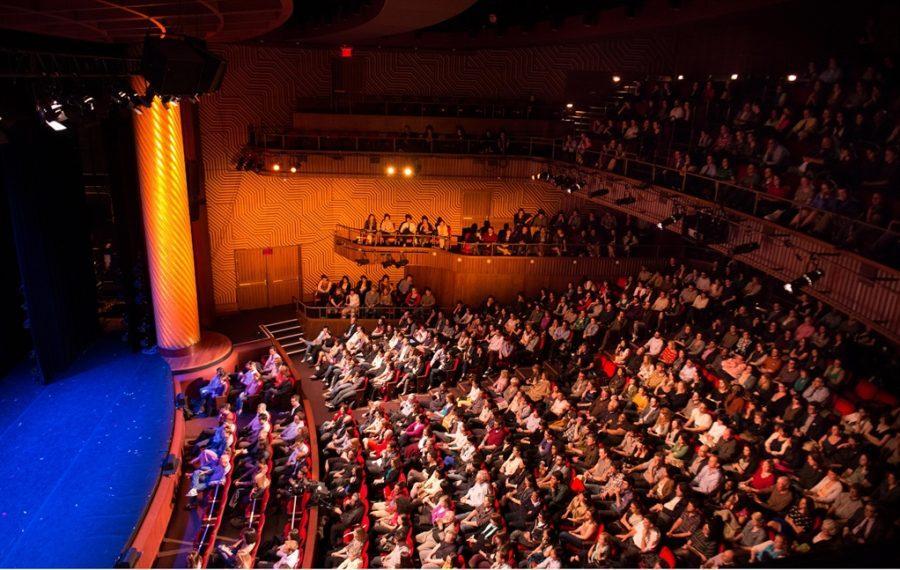Judith Butler Inspires at NYU Skirball Talk
NYU’s Skirball Center of the Performing Arts (via NYU).
February 13, 2018
Judith Butler, a highly esteemed academic, social philosopher and author, spoke to a crowd of at least 500 at the Skirball Center for the Performing Arts on Feb. 12. The University of California, Berkeley professor focussed on a number of issues, including contemporary solidarity, the Palestinian freedom movement and white supremacy in modern America.
Butler currently holds the title of Maxine Elliot Professor of Comparative Literature at UC Berkeley where she conducts research on areas of critical theory, gender and sexuality studies, comparative literature and philosophy.
Butler’s talk was part of the third annual José E. Muñoz Memorial Lecture. The lecture is held by the Department of Performance Studies and the Center for the Study of Gender and Sexuality at NYU in remembrance of the late Muñoz — a former Tisch School of the Arts professor known for his contributions to performance studies and queer theory.
Students from a broad range of majors and NYU schools attended the event.
“Based on the description, this talk seemed like something that wouldn’t typically be on my radar which is exactly why I wanted to check it out,” Nicolas de Rhodes, a sophomore studying economics, said.
“While I could say that I went to go see her talk to hear her words, I mostly went so that I could finally put a face to the name, and to humanize the voice whose ideas have so greatly shaped my interaction with the world,” Gallatin sophomore Claudia Vera, who studies museum politics and art history, said.
In her talk, Butler gave criticisms of contemporary solidarity, saying that those who subscribe to it are too rigid in their definitions of what it means to be in solidarity with a movement.
She also reminded the audience of the threats that white supremacy and white nationalism pose to society.
“Let us remember … that the most prevalent and toxic forms of identity politics during our time are white supremacy and white nationalism,” Butler said to the crowd. “So, for those who blame the current political situation on a left that is supposedly too concerned with identity politics, let us remember that white identity politics is the most virulent form around.”
During the lecture, Butler drew similarities between the anti-racism movement and the Palestinian freedom movement — a statement echoed from the late Muñoz.
“Is there something black about waiting [for freedom]?” she said, synthesizing the black community waiting for civil rights to the Palestinians waiting for freedom.
After the talk, some students said they felt like their world had been opened.
“Critical theory always seemed inaccessible to me in many ways, because even as a deviation from canonical theory it is still an academia that is masculine and heteronormative,” Vera said. “[Butler’s] notions of queerness and performativity really complicated the ways I was approaching theory and reality.”
The CSGS prides itself on facilitating “a broad interdisciplinary investigation of gender and sexuality as keys to understanding human experience,” according to its website. It is also one of a few centers in the United States which emphasizes both the study of gender and sexuality in their respective names.
Email Alex Kaplan at [email protected]























































































































































